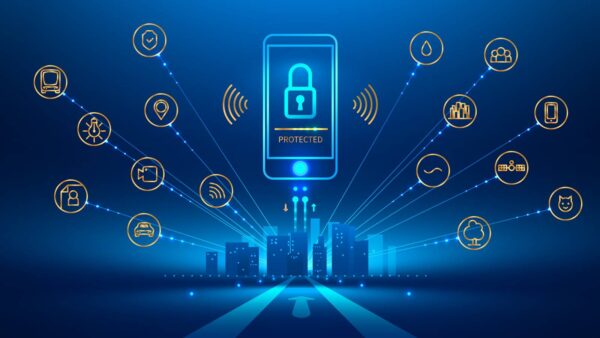Cyber security uses technology, processes, and policies to prevent cyber assaults on systems, networks, programs, devices, and data. Its goal is to limit the risk of cyber assaults and secure systems, networks, and technology from unauthorized access.
Because the number of devices being used these days is increasing rapidly , and attackers are becoming more inventive, implementing effective cybersecurity measures is particularly difficult. You can safeguard your time online by taking an online cybersecurity course to learn more about these threats.
What is the Internet of Things (IoT) Security?
IoT security can be defined as a security strategy and protection mechanism that specifically protects IoT devices linked to the network and purposefully created for a certain set of functionality against cyberattacks. Any connected IoT device that lacks sufficient security is vulnerable to infiltration, compromised, and controlled by someone to steal user data and break down networks. Organizations should include IoT security in normal practice, the methods, and procedures, by network security and operations teams to guarantee that unmanaged devices have the same visibility and control as managed devices.
Vulnerabilities and security issues in the Internet of Things
- Vulnerabilities that haven’t been patched – Devices running on old software are frequently exposed to newly revealed security vulnerabilities due to connectivity issues or the necessity for end-users to download updates directly from a C&C center manually.
- APIs are widely targeted by several threats, including code injections (e.g., SQLI), Man in the Middle (MITM), and distributed denial of service (DDoS) attacks, as they serve as a gateway to a C&C center.
Mobile Security
Mobile security is a precautionary measure used to guard against various dangers that aim to invade your privacy and steal any other data kept on your phone. These mobile device assaults are designed to steal your personal information, such as bank account information, login information, and other information.
What is the significance of mobile security?
Mobile security impacts your personal life and an organisation’s productivity and performance. Mobile devices can open up a slew of new business prospects. However, success is ensured by having the greatest tools to keep the data on a company phone secure. Make sure you don’t underestimate a hacker’s abilities.
Hackers can easily access and change the data on your phone. Hacking can involve more than just collecting usernames and passwords or sending phishing emails. It includes listening in on chats and hacking into any data on your phone.
Conclusion
Mobile applications follow similar protections and security protocols used to secure other IoT devices. Establishing, adopting, and enforcing these globally recognized, harmonized standards will, in turn, provide improved transparency about what users are downloading, boost trust and lessen worries, and contribute to higher long-term adoption rates. If security is integrated into the process proactively rather than retroactively after a breach, companies and their apps will be better positioned to succeed and keep their consumers secure online in the future. Check out the Stanford cybersecurity course to learn more about online safety measures. Great Learning offers various courses for learners at all levels.



